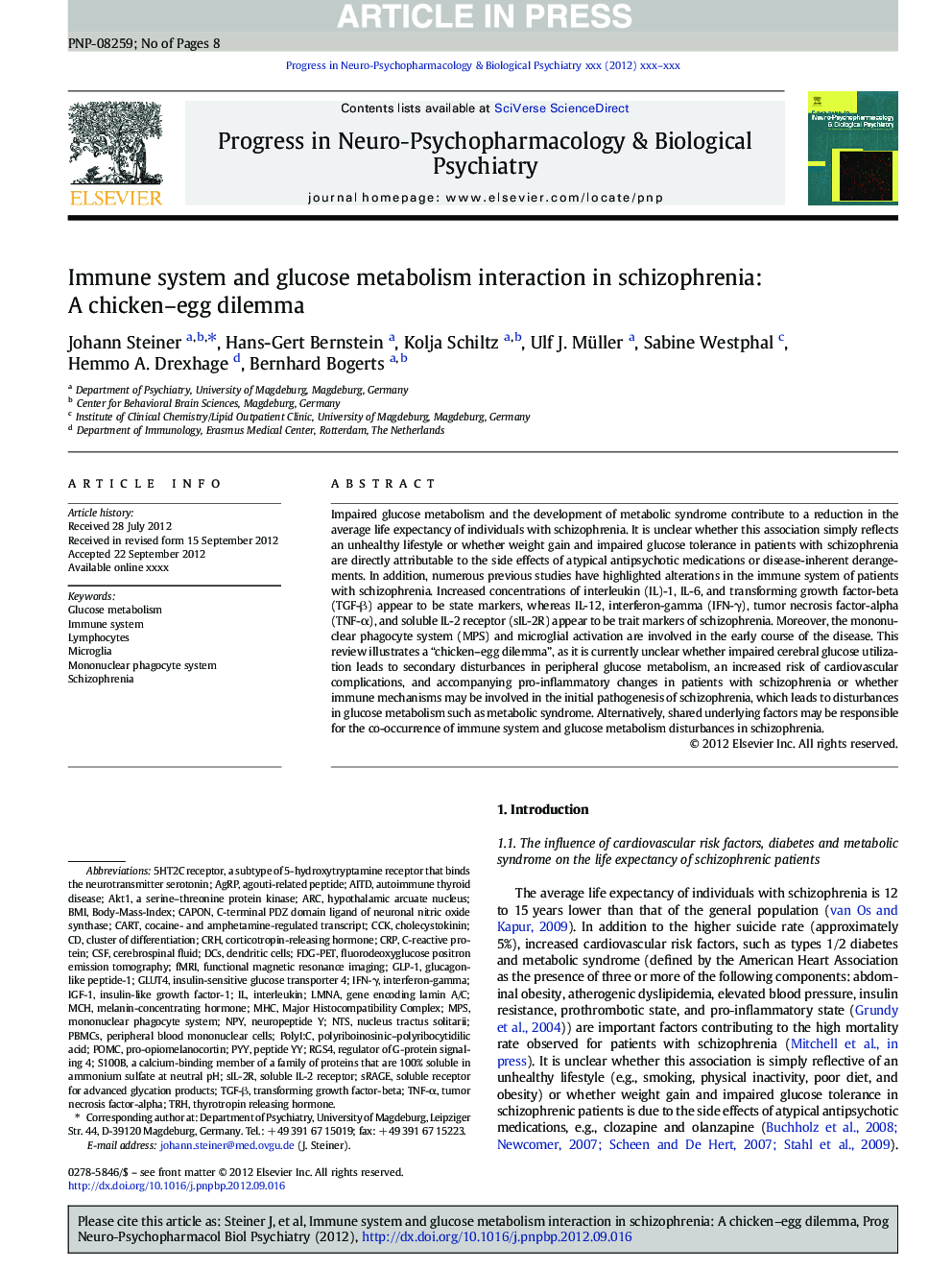| Article ID | Journal | Published Year | Pages | File Type |
|---|---|---|---|---|
| 5844495 | Progress in Neuro-Psychopharmacology and Biological Psychiatry | 2014 | 8 Pages |
Abstract
⺠Impaired glucose utilization may induce inflammatory changes in schizophrenia. ⺠Immune alterations may trigger impaired glucose tolerance in schizophrenia. ⺠Immune / glucose metabolism disturbances may co-occur in schizophrenia.
Keywords
FDG-PETPBMCsCARTGLP-1DCsNTSIFN-γAITDCCKIGF-1S100BLMNAPOMCAgRPNPYAkt1GLUT4pro-opiomelanocortinPYYTGF-β5HT2C receptorCRHRegulator of G-protein signaling 4MCHRGS4sRAGEsIL-2RPolyI:CSchizophreniainsulin-like growth factor-1interferon-gammainterleukintrhautoimmune thyroid diseasetransforming growth factor-betafunctional magnetic resonance imagingfMRItumor necrosis factor-alphaFluorodeoxyglucose positron emission tomographycluster of differentiationcocaine- and amphetamine-regulated transcriptImmune systemperipheral blood mononuclear cellsDendritic cellsmononuclear phagocyte systemBody-mass-indexBMITNF-αArcLymphocytesCSFCerebrospinal fluidGlucose metabolismMHCmajor histocompatibility complexsoluble IL-2 receptorMicrogliaMPsNucleus tractus solitariihypothalamic arcuate nucleusThyrotropin releasing hormonecorticotropin-releasing hormonemelanin-concentrating hormoneC-reactive proteinCRPglucagon-like peptide-1peptide YYagouti-related peptideCAPONcholecystokininNeuropeptide Y
Related Topics
Life Sciences
Neuroscience
Biological Psychiatry
Authors
Johann Steiner, Hans-Gert Bernstein, Kolja Schiltz, Ulf J. Müller, Sabine Westphal, Hemmo A. Drexhage, Bernhard Bogerts,
